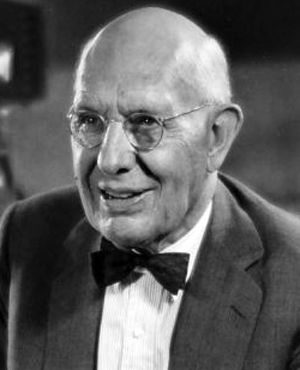 Charles Kettering (1876-1958), an inventor with 186 patents including the electrical starting motor, once said, “A problem well stated is a problem half-solved.” Kettering’s words provided the basis for much of my research and teaching related to creativity and remain an inspiration for this blog, a search not only for answers, but for better questions.
Charles Kettering (1876-1958), an inventor with 186 patents including the electrical starting motor, once said, “A problem well stated is a problem half-solved.” Kettering’s words provided the basis for much of my research and teaching related to creativity and remain an inspiration for this blog, a search not only for answers, but for better questions.
Tonight, the 2020 election begins in earnest with the Iowa caucuses. And much has been made of polls designed to gauge popular sentiment about the multiple candidates for the Democratic nomination. If not already, many of you may be approached by political, media or academic research entities for your opinion as the primary schedule brings your respective states into focus. Even if we are not part of a statistical sample, choosing among options is part of the process each of us go through as we consider how to mark our own ballots on primary day.
A module in my “Imagination and Entrepreneurship” class at Miami University was titled, “Why Do You Ask So Few Questions?” It was a play on the oft voiced frustration of parents when their children seem to have a question for everything. “Why do you have to ask so many questions?” And I would point out the obvious irony. Parents’ irritation with their children’s curiosity is communicated in the form of (drum roll) a question. Touché!
However, there are many different ways to ask a question. A journalism student, trained to report facts, is told to cover the following in the lead paragraph of a story: WHO, WHAT, WHEN, WHERE and HOW. Because those are the most immediately known elements of the narrative. Only later does the writer get to the WHY, the motivation behind what happened, and often initial reporting on motive is speculative and based on circumstantial evidence. Yet, truly understanding the story depends on the answer to this least obvious question, WHY.
The advantage each of us has when making a personal decision is we get to decide the WHY, the motivation behind our actions. In no case is that more true than, when it comes to elections, we gravitate toward a particular candidate. Therefore, as Kettering suggests, make sure you articulate the problem before seeking a solution.
As I have stated on multiple occasions, I have not made up my mind among the candidates most likely to still be in the race by March 17, the date of the Florida primary. But I will share some of the questions on which I plan to eventually make that decision.
- Why do I believe Donald Trump needs to be replaced? Policies? Character? Demeanor? All of the above?
- Why do I have Trump fatigue? Is it what he says? How he says it? Where he says it?
- Why do I feel such animosity toward people who voted for Donald Trump?
- Why should I care how a candidate finances his or her campaign?
- Why am I lukewarm to some candidates and enthusiastic about others?
- Why does age or experience matter to me?
- Why do I nod my head when one candidate says something and shake my head when another speaks?
- Why should I care who wins the nomination?
Sorting through these questions is not easy. What do I do if I think grassroots financial support is important but the candidate who does that best advocates policies with which I disagree? Welcome to life. As we used to joke at the Kauffman Foundation each time we drafted a job description for a new hire, “Who are we looking for, Jesus of Brush Creek?” (NOTE: The foundation’s headquarters in Kansas City overlooked Brush Creek. You know, Kansas City, the home of the Super Bowl champion Chiefs, who are not based in Kansas. Maybe Mike Pompeo should give Trump a map of the United States without names and ask him to point out Missouri.)
There is no perfect candidate. This is about priorities. And the only thing I wish for on election day is, when I cast my ballot, I am comfortable with my choice and know why I made it.
For what it’s worth.
Dr. ESP